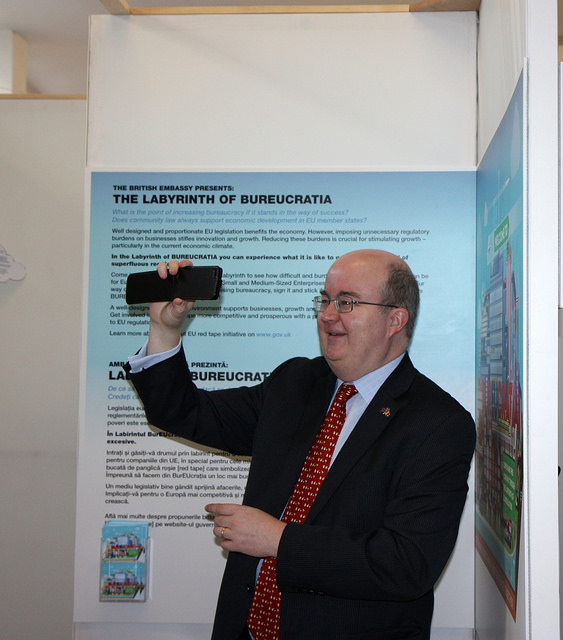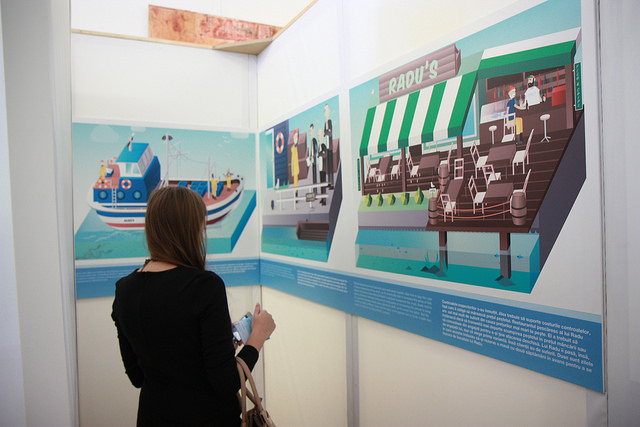29th December 2015
BurEUcratia: tackling unnecessary EU bureaucracy

Singer-songwriter Andreea is excited at an opportunity she has been given to perform abroad in another state of BurEUcratia. Her concert is a great success. Her new fans snap up her CDs and ask her where they can download her music. Andreea travels home buzzing with new ideas, and plans to raise the funds to make her new album with the help of her new fans.
Andreea’s publisher Raluca thinks that these new overseas fans can open up whole new horizons for her. They decide to launch an online sales operation. Their web shop starts off well and they get more and more orders from across BurEUcratia. But they are told they are required to pay value added tax in the country of each buyer even though they are below the VAT threshold in their own country, which makes things more difficult and costly. They also have to be careful about selling in other countries as different marketing and consumer rules seem to apply everywhere, and they find it impossible to stick to all the regulations.
Because of the lack of profits Raluca reluctantly decides to shot down the web shop. Andreea decides that the only way in which she can finance her new album is through performances, and she heads off to the local park for a day of busking.
Before readers rush off to check out Andreea’s videos on YouTube, I should clarify that she does not, in fact, exist. She joins car dealer Stefan, fisherman Alex, and florist Ana among the fictional examples of young entrepreneurs whose dreams are shatteredon the rocks of the excessive bureaucracy in the grouping of imaginary states called BurEUcratia.
Adapting materials developed by our colleagues at the British Embassy in Budapest we set up in December at the Bucharest Academy of Economic Studies (ASE) an exhibit highlighting the gains for small businesses in cutting down on excessive red tape. Visitors navigated the labyrinth of BurEUcratia regulations, sympathising with the experiences of Andreea and her friends.
Confronting unnecessary red tape in the European Union is a priority of the British government. The UK’s business-led taskforce on EU regulation set out a range of proposals for cutting red tape, like the adoption of a “common-sense filter” for all new proposals, incorporating elements such as a competitiveness test to gauge whether the proposals strengthened or weakened European competitiveness. Prime Minister David Cameron, speaking in November, acknowledged that much had been done, noting that “legislative proposals under the new Commission have fallen by 80 percent with more regulations set to be repealed this year than in the whole of the previous Commission.” But there is much more that can be achieved to boost European growth and jobs and to ensure that the dreams of real-life Andreeas are not sunk beneath the weight of unnecessary red tape.

Paul,
Message from many years ago. You still amaze me with your wit and ability to translate the modern world into humor. Have seen many of your missives in the past. Please keep it up.
Alex